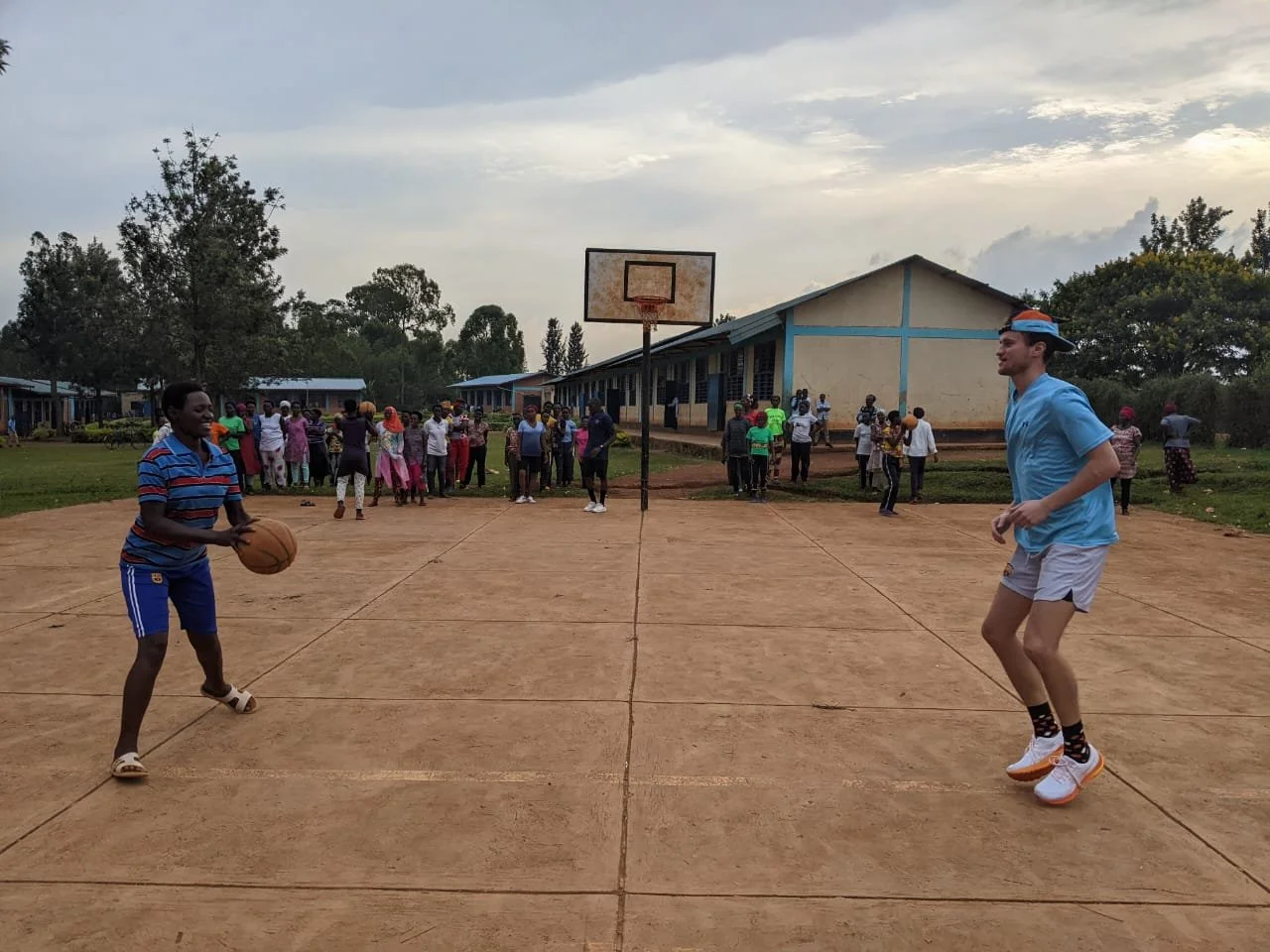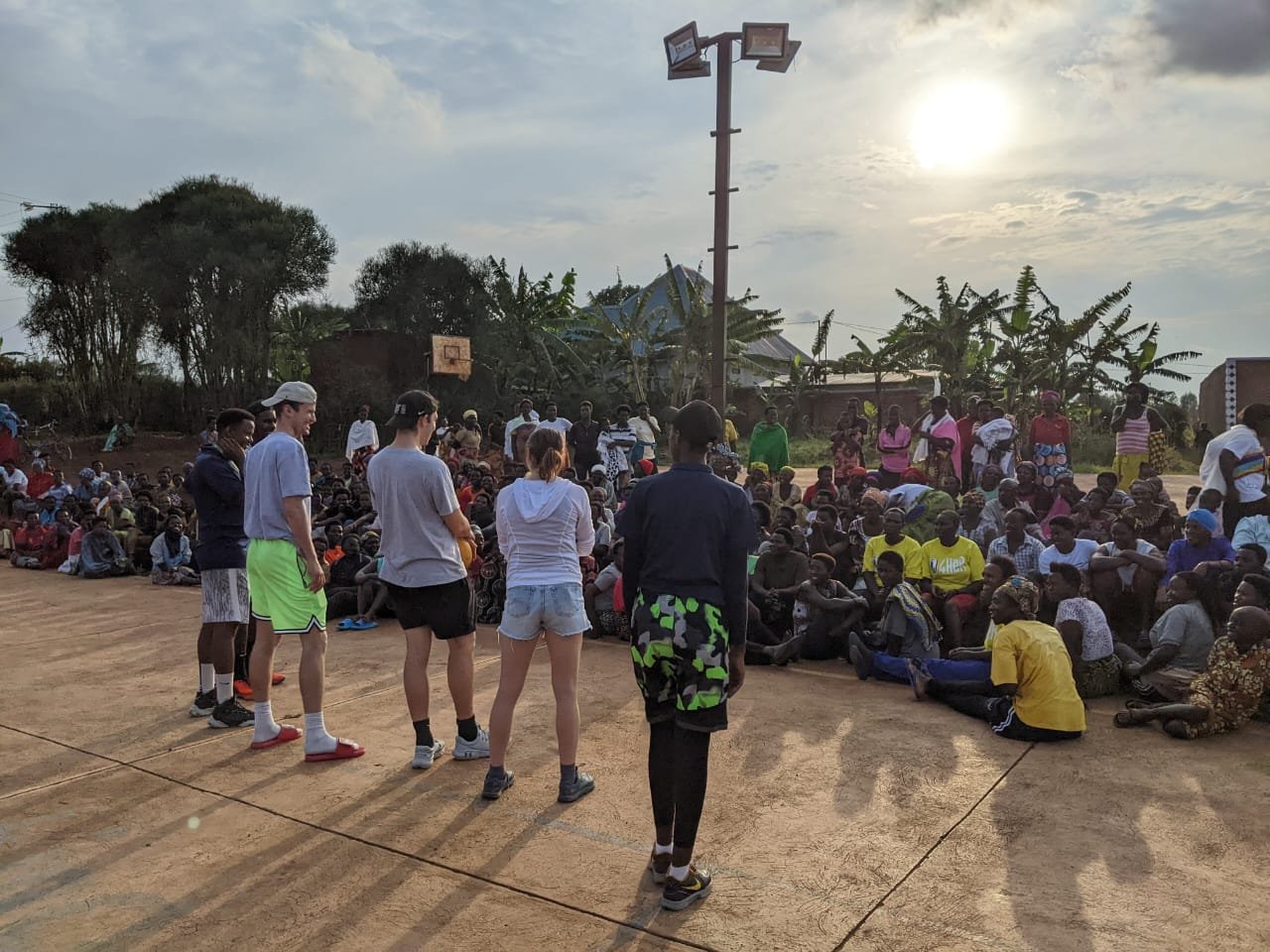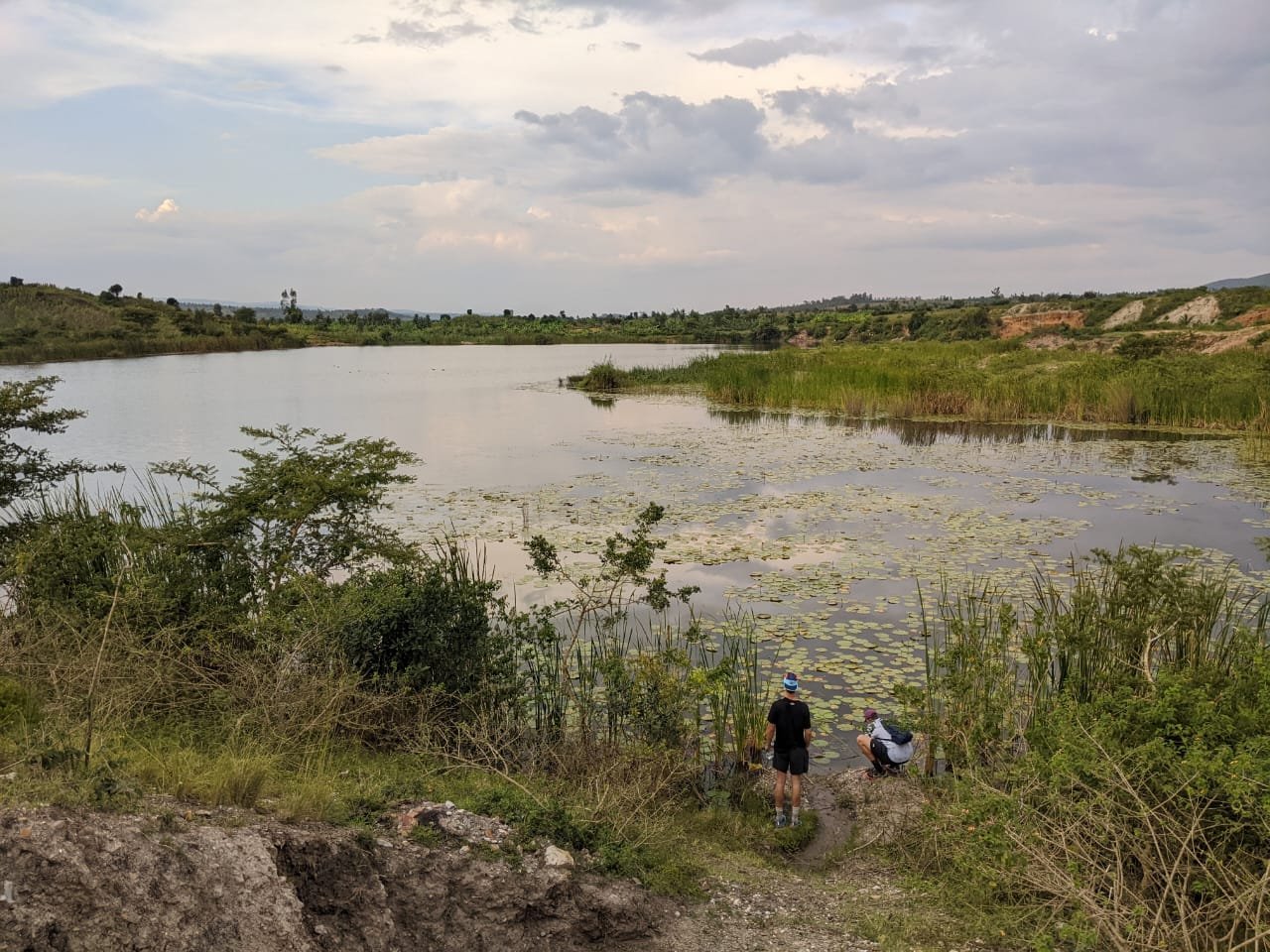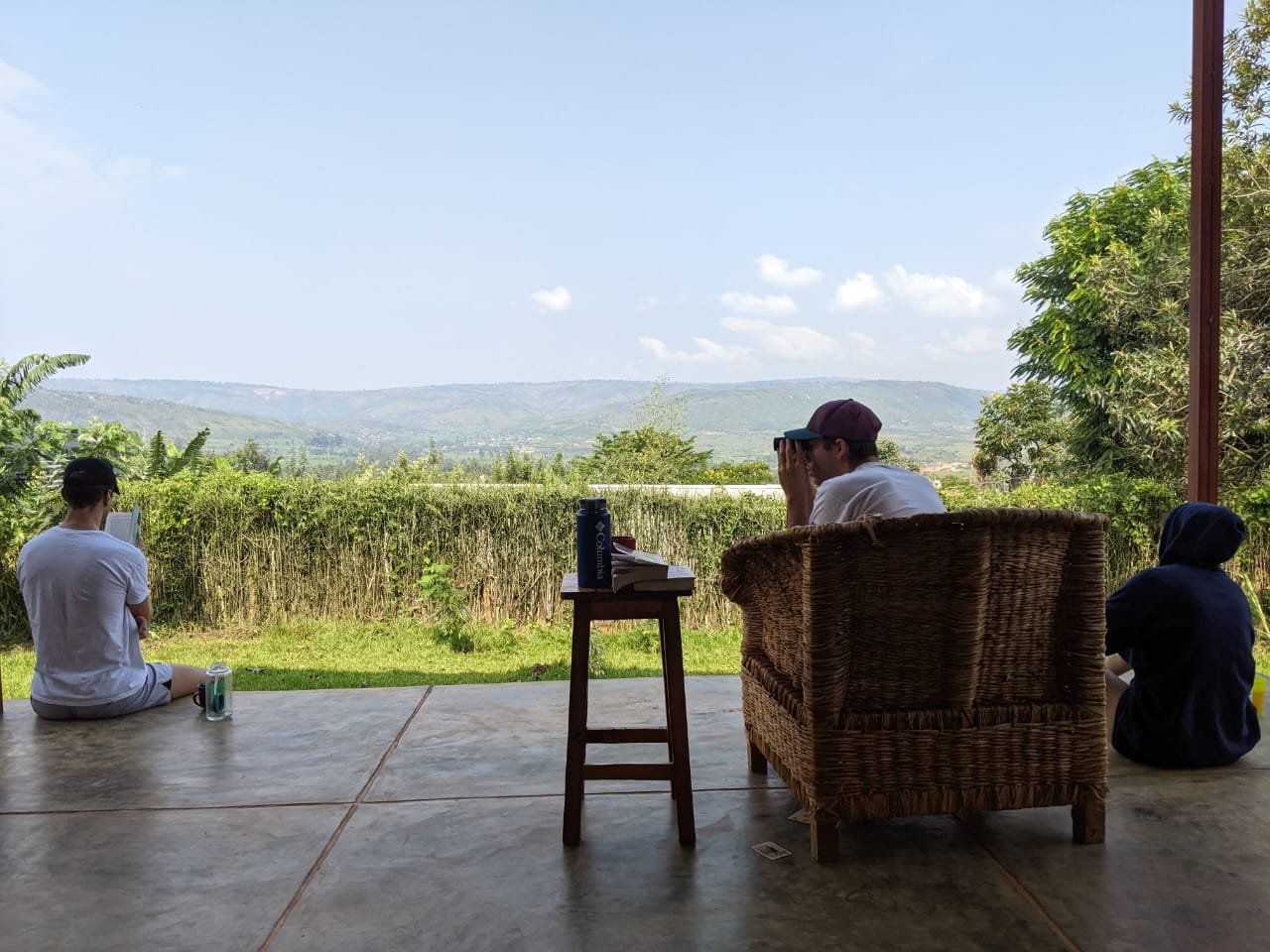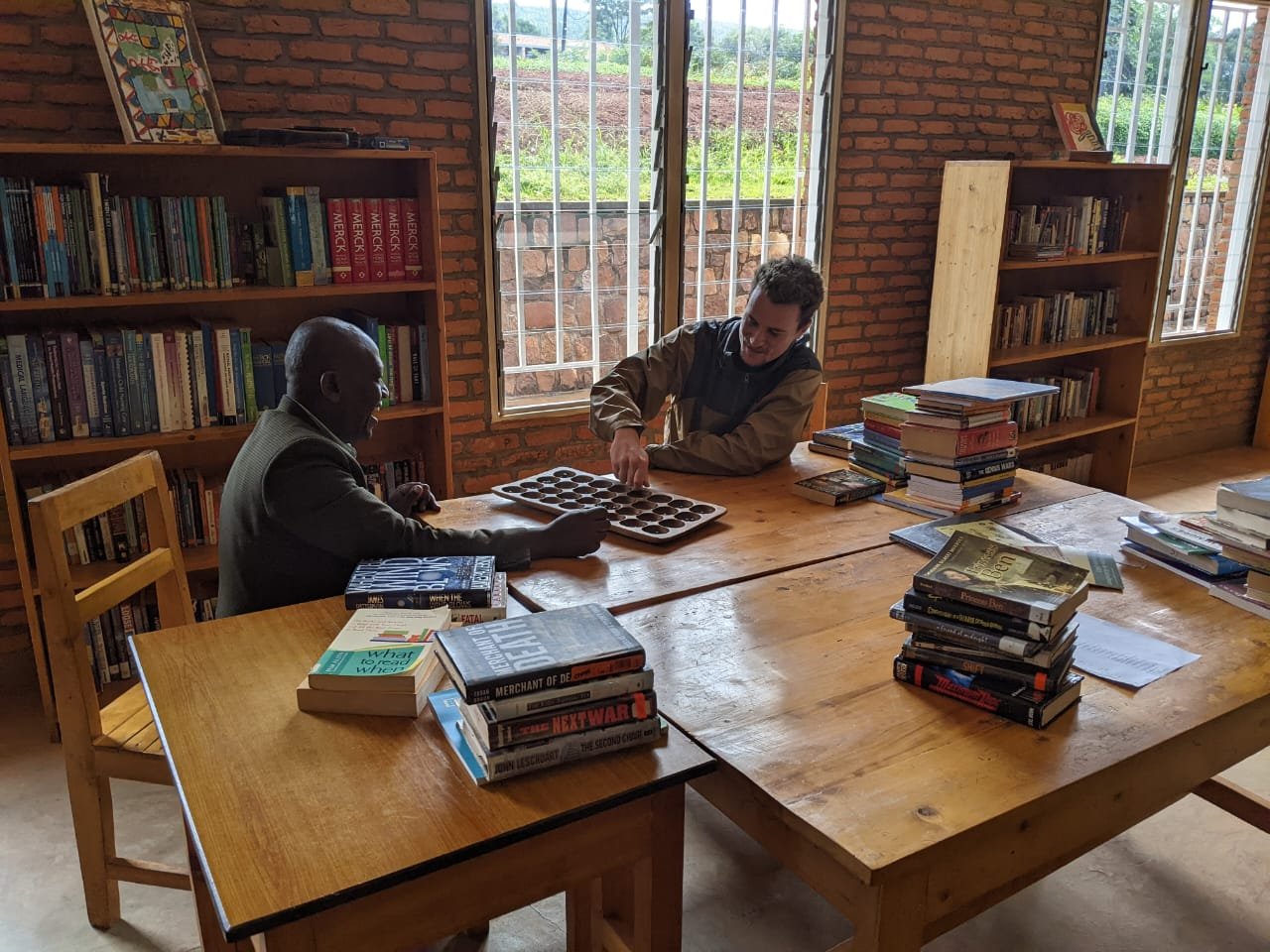“Doc, I’m in no mood. I was supposed to be at Joe B’s two hours ago. What’s the verdict?”
“NOT ALLERGIC.”
(Shakes head) “No chance.”
“May just be a severe irritation. I’ll write you a prescription for an EpiPen.”
As I stare down the barrel of potentially 8 months as a part-time vegetarian, I’ve begun to reflect on the above interaction from nearly a decade ago. Living in the villages outside of Kigali has me seeking extra calories to sustain my already slim frame. I’ve started to ponder my options, recognizing I have no unwanted poundage to shed, also noting my limitations with nuts and slimy fruits (mangos, pineapple, bananas). The issue for me is that the Rwandan village diet relies heavily on these ‘deadly’ fresh fruits, and the incorporation of peanut butter and nuts is utilized heavily for quick nutritional boosts. No doubt I will survive though. (Irritation might also be fake – had pad Thai with peanuts a few months back and nothing happened).
Trivial issue relative to my environment out here, but I thought I’d start my blog with my first and lingering observation. My reliance on meat heavy meals and the overabundance of items to choose from at shops in the US and Europe has certainly given me a jaded perspective on food consumption throughout the world and I’m learning quickly I need to adjust.
Moving on.
I’ve always had the tendency to romanticize experiences in life. People have then always been quick to warn me about the dangers of dramatizing the world and the threats of being let down. Don’t think like that, it never works out the way you imagine, they say. Often that is true – you don’t get into your dream school, your dream job ends up being unfulfilling, or you don’t meet your future wife reaching for the same vegetable at the grocery store (dang).
My first month in Rwanda has reinforced the notion that romanticizing reality is better than the alternative. The saddest stories are those of regret from people who were too risk-averse to disrupt and abandon their comfortable lives to achieve their dreams. Fear creeps in and triumphs over passion. I’m certainly from a position of privilege as I say this as well. Responsibilities are true barriers. Not everyone can say hey I want to move to Africa and just pack up and leave. I’ve had incredible support systems throughout my life who have always encouraged me to pursue my passions. My point is that I think we need to shift the narrative to discuss what will go right if you take a chance versus being so concerned about what will go wrong. If you’ve got the chance (and support) to make a big change, and you’re concerned with the associated challenges, it’s natural, but the regret of inaction will be harder to deal with.
This reliable support has helped me develop the mindset that it’s better to be positive about life and expect everything to work out. Why not? Experiences will always be different than what you imagine, whether you’re overly optimistic or you attempt to take the ‘rational’ and ‘practical’ pathway. You can dream about a place or experience, but until you’re in the moment, it’s impossible to verify.
I’ve had this desire to move and work in Africa for some time now. I can’t remember a specific reason why, I have just always been drawn to the continent, the people, the differences. Now that I’m in Rwanda, transporting from the progressive, developing capital city of Kigali, to the surrounding rural villages embedded within the land of a thousand hills, my initial lived realities and true feelings towards this country are nothing compared to what I imagined. They’re a combination of things; better, unexpected, different. It’s not a binary experience.
It's good to romanticize. It’s good to imagine yourself living out a dream. I glamorized an experience and a place I had no idea about. Grateful for those daydreams – they were the best use of my time. Getting lost in thoughts about Africa pushed me to take the necessary steps to get out here. As I said, it’s impossible to replicate an experience in your mind anyways, so why limit your imagination? My time so far has been awesome. Even if it was the opposite, at least I would be able to confirm that, instead of being one of those “what if” people that live with regrets.
Advice to my future self out here in Rwanda, as well as people in general, is to keep an open mind instead of allowing the negative thoughts of “it never works out like you would imagine” enter your mind. Obviously, my Rwanda experience is going to be different than I imagined. How would I ever be able to predict my experience without having ever been to Rwanda? I was right about some things, wrong about others. Some things I had no idea about. Loving every minute of it right now though. Excited to keep learning about this place and the beautiful people – continuing to confirm previous expectations, while keeping an open mind about the new and exciting knowledge that’s yet to come.
Enough preaching. Some quick hitters for my millions of readers:
The big smiles and joy from the basketball courts – easy to stay energized watching the women and children hoop.
Your body receiving an unannounced “African massage” from being tossed around on the bumpy, broken dirt roads.
Kitenge – colorful fabrics with vibrant patterns that give an elegance to everyday life/activities
Coffee, beef samosas, mandazis, chapati.
Rwanda wins – having a plan for the day and that agenda being completely interrupted by the Rwandan flow of life.
The Shooting Touch impact is real. It’s palpable. The team is full of gems (and weirdly good at card games). Excited to grow with them.
About the Author
Nathaniel Cueter is the 2023 Shooting Touch Rwanda (STR) Manager of Operations Fellow. He received his Master’s in International Relations from IBEI in Barcelona this past summer. He is excited to share his love for basketball with the communities in Rwanda, experience life in Africa, and contribute to the Shooting Touch mission.

